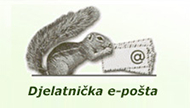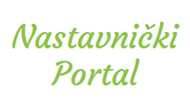URBAN SYSTEMS
Research of urban systems under the scope of the project Urban Systems in Croatia’s Spatial Development analyses their uneven development, which, in the case of Croatia, has influenced unfavourable spatial processes, such as a prominent centralization and polarization, as well as a marked rural exodus. This research deals with urbanization characteristics, towns in border areas, small and medium towns, town as a system, spatial structure of towns, spatial organization of economic activities and development of economic zones, market of immovables in towns, urban regions, suburban traffic systems and spatial development of Croatia from the aspect of different development concepts (centre-outskirts, polarized development, axes of development, etc.). The aim is to introduce corresponding spatial-planned measures and suggestions with the purpose of the regional and spatial development balance.
ENVIRONMENTAL CHANGE AND CULTURAL LANDSCAPES
Research in the framework of the project Environmental Change and Cultural Landscapes as Development Resource includes two basic discourses: ecological and semiotic. The ecological one is directed towards the processes between nature and the activities of the human society, where the latter are mainly considered a menace to ecological balance. This discourse corresponds to the idea of landscape as natural welfare. Semiotic discourse is directed to social and cultural significance in landscape formation. This approach corresponds to the idea of landscape as social and intellectual welfare. Cultural landscape is one of basic concepts in geography and one of the most complex ones.
GLOBALIZATION AND TRANSITION
The project The Effect of Globalization and Transition on Croatia’s Regional Development deals with globalization and transition. They represent two very strong motors of change in the Croatian society. In some last twenty years, globalization has become especially strong in the world owing to a rapid growth of direct foreign investments, decrease of commercial barriers among countries, fall of the prices for transportation to large distances, and to the establishment of a unique telecommunication net. It is almost impossible to explain the spatial picture of regional development (e. g. domination of Zagreb, weakness of the city outskirts) without numerous globalization and transition processes. The aim is to research globalization and transition processes, as well as their effect on the regional development of Croatia in order to illuminate the underdeveloped Croatian regions and suggest solutions for their improvement, as well as to enable a quicker connection of the most developed parts, such as Zagreb, with the developed ones in Europe and in the world.
TOURISM DEVELOPMENT
The main purpose of the project Space as a Resource for Croatian Tourism Development is the research of space and tourism interrelations. Space is simultaneously a prerequisite of tourism development and a medium in which tourism proceeds, and in time, it is being transformed under the influence of tourism. In that process, if tourism development is not followed by a quality regional planning and management, its vital basis (natural and anthropogenous resources) is very often degraded. Researches will make efforts to define natural and anthropogenous space elements included in the Croatian tourism attraction basis, analyze in which way that same space is being transformed by tourism, and whether that transformation has a positive or negative impact on the space as present and future basic Croatian tourism resource.




